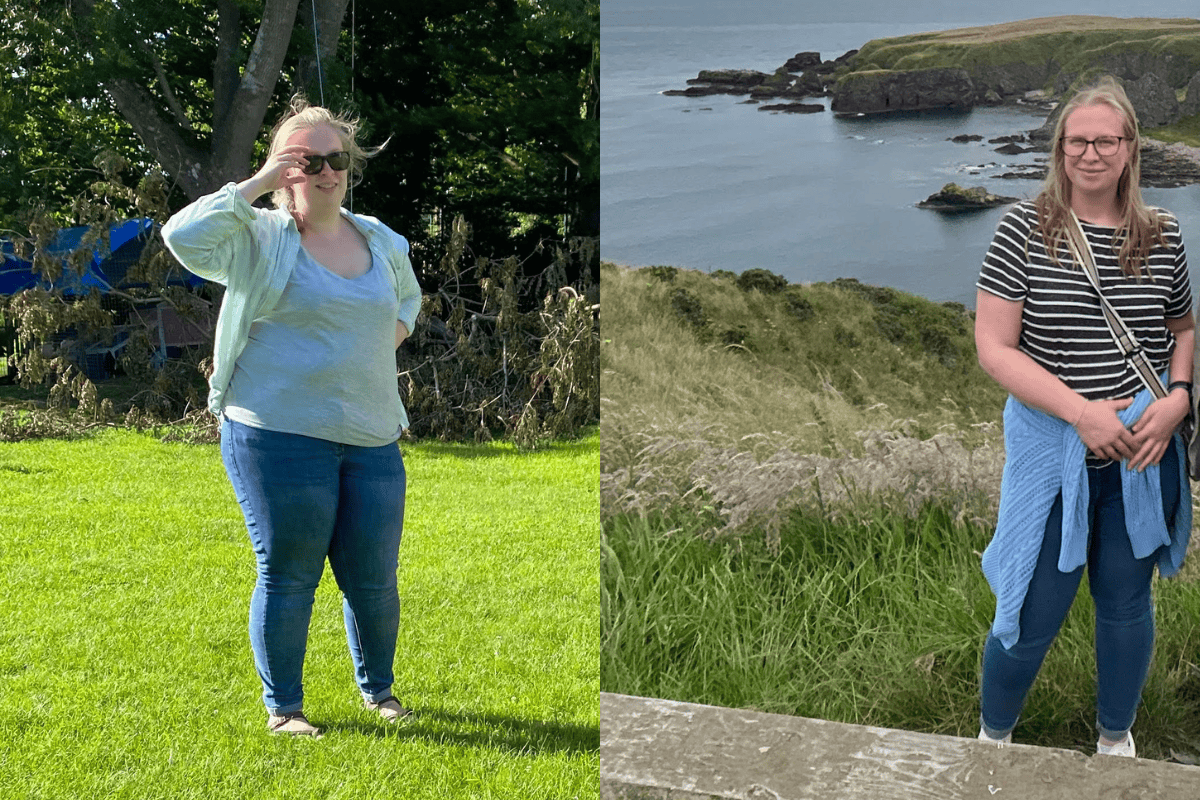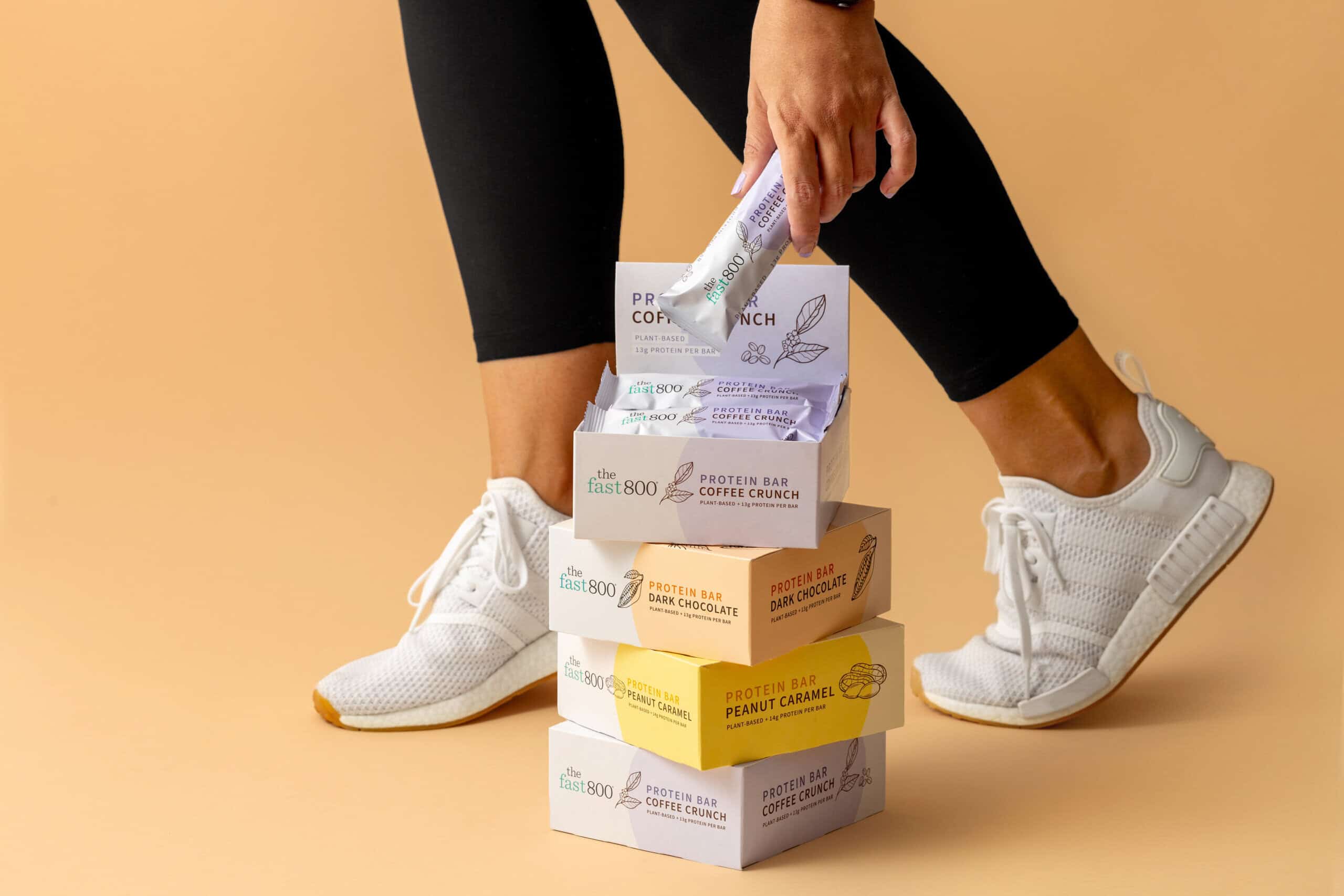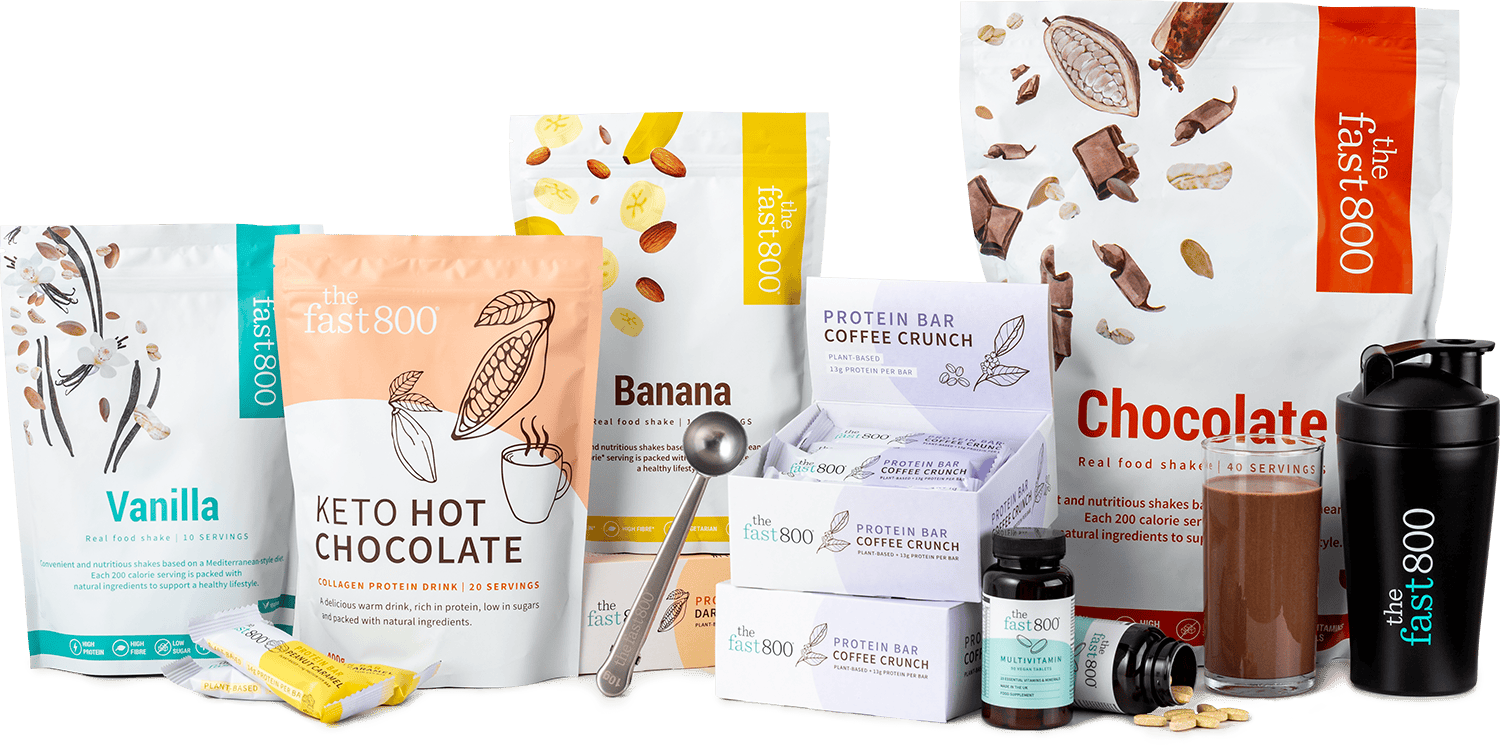Addictive foods and how to beat them
Have you ever wondered why some foods trigger a compulsive urge to eat? Addictive foods almost all have one thing in common: a 2:1 ratio of carbohydrate to fat.
According to recent discoveries in neuroscience, however, you can train your brain to resist addictive foods. Here, we explain how.
For some, it’s milk chocolate. For others, it’s crisps. We have even met one person who simply could not keep away from mini rice cakes spread with butter. Almost everyone who has struggled with their weight has a few foods that can be relied upon to wreak havoc on even the most carefully-planned diet.
Aside from being a source of immense frustration, these foods also share another feature: all of them contain a ratio of two parts carbohydrate to one part fat.
The science backs this up. In 2015, researchers from the University of Michigan1 took 120 students, offered them a choice of 35 different foods, and asked them to fill in the Yale Food Addiction Scale, a measure of how addictive you find a particular food. The foods were then ranked from 1 to 35 by the students.
Top of the list of “most addictive foods” was chocolate, followed by ice cream, French fries, pizza, biscuits, crisps, cake, buttered popcorn and cheeseburgers. At the bottom were salmon, brown rice, cucumber and broccoli.
Here are the top addictive foods, broken down by fat, carbohydrate and calorie content per 100g:
| Milk chocolate | 30g fat | 58g carbs | 534 calories |
| Ice cream | 12g fat | 24g carbs | 200 calories |
| French fries | 15g fat | 32g carbs | 270 calories |
| Pepperoni pizza | 10g fat | 30g carbs | 266 calories |
| Crisps | 30g fat | 50g carbs | 536 calories |
| Sponge cake | 26g fat | 50g carbs | 546 calories |
| Buttered popcorn | 30g fat | 56g carbs | 546 calories |
| Cheeseburger | 14g fat | 30g carbs | 303 calories |
Looking at the foods when listed by content, it is striking that each one of them is made up of approximately 2g carbs to 1g fat. Which – it turns out – is the exact same ratio of fat to carbohydrate that is present in the very first food that we consume: human breast milk. In fact, milk is one of the very few natural foods that contains high amounts of fat and carbs all mixed together.2
The infant brain is super-sensitive to experiences during early years, laying down neural reward pathways that last for life. It is not surprising, then, that the food that gives us our first feelings of reward lays the foundation for our later food cravings.
Some might conclude from this that there is very little that we can do to alter our hard-wiring. We’re not babies any more: our brains are no longer forming their first connections.
But this would be wrong. A growing body of evidence shows that the human brain is a continuous work in progress: even in midlife we can remodel and reshape its deep-level connections, allowing us to break free from lifelong patterns of behaviour. And for a population caught in the grip of an obesity crisis, this awareness could quite literally save lives.
Here, we give a practical, three-step guide to retraining your brain to resist addictive foods.
1. Switch to a Mediterranean-style diet

Studies show that a Mediterranean-style diet can improve the performance of a brain region linked specifically to self-control.
The urge to give in to cravings of any kind – whether for food, nicotine, alcohol or gambling – is closely linked to a set of reward pathways forming part of the mid-brain.3 Signals from these pathways, however, can be given a “veto” by another set of neurons, closer to the front of the brain, within the “prefrontal cortex” or PFC.
In small children, the PFC is particularly under-developed. This is one reason why children struggle so much when they are not allowed whatever they want – as any parent who has dealt with a temper-tantrum can attest!
When the PFC functions well, on the other hand, we display the opposite of toddler tantrums. We are better able to focus; we have greater self-control, including control over what we eat; and we have greater mental flexibility.4 Together, these qualities are termed “executive function”.
In a review of a number of studies, a team of researchers at Trinity College, Dublin found that people who consume a Mediterranean-style diet – particularly one rich in extra-virgin olive oil, fish and fresh vegetables – tend to have better executive function compared to those following conventional weight-loss advice.5
By contrast, two other studies6 7 showed that when healthy adults were asked to consume a diet composed almost entirely of energy-dense, fatty foods, they showed a marked fall in executive function – the ability to plan and get things done. Further studies also show improved outcomes in thinking-skills following voluntary weight loss.8
Taken together, the studies suggest that a better diet could give you a more powerful PFC, and stronger self-control.
Fascinatingly, a separate study9 found that when PFC activity is reduced, people experience intensified cravings for junk food, and also actually eat more of it.
Scientists based at the School of Public Health in Ontario took a group of 21 healthy women, aged between 21 and 26, and measured their food cravings using a questionnaire. They then placed one set of the women inside a magnetic field that was specifically designed to cause a temporary reduction in PFC activity, and placed another inside an identical-looking device that did not, in fact, produce any effect on the brain.
After the burst of magnetism (or fake magnetism), the women were then asked to re-score their junk food cravings, and were also free to consume snacks.
The results were clear. The women who had been placed inside the working magnetic field, and so who had experienced genuinely reduced PFC function, reported afterwards that their junk-food cravings had increased by 10 per cent. They also helped themselves to 10 grams more in snack food than those who had been in the fake field. The group who had been placed in the fake field, meanwhile, reported a 3.5 per cent reduction in cravings.
In order to conquer addictive foods, then, it is essential to keep your self-control in peak condition. And to do this, you need to look after your PFC. And to do this? Stock up your cupboards with fresh vegetables, fish, and extra-virgin olive oil. Find out more about easy-to-cook and delicious Mediterranean-style recipes.
2. Get active!

Increased fitness leads to increased prefrontal cortex size, which makes it easier to make the right food choices.
As we have seen, the idea that the brain is an unchangeable, hardwired set of drives is false: A factor as simple as the amount of fish you eat can have a measurable effect on how it functions.
Exercise, like diet, is another easy way to build a brain that can resist the lure of addictive foods. Again, the science bears this out. In 2012, for example, a US-based study10 compared the fitness, executive performance and PFC volume (using MRI scans) of 142 adults of average age 66. The results showed that a high level of fitness, on average, correlated with a whopping 12.55 increase in grey matter volume within the PFC. That’s a lot of brain.
In 2011, a study even showed that exercise can even reverse loss of brain matter in later life.11 12 These kinds of results are especially important, as they support the conclusion that that exercise builds a better brain – not the other way around.
Remember, to get fitter, you don’t have to exhaust yourself training for a marathon, or squeeze into neon lycra. The key is to find an activity that you enjoy enough to take part in at least three times each week.
As well as following a structured programme of exercise, you can also improve your heart and lung function by increasing the number of steps that you take through the day. Here are some easy tips:
- If you take public transport to work, get off a stop earlier and walk the rest of the way.
- If you are working at a desk, take a short break every half-hour to walk a few hundred steps.
- Use the stairs instead of the escalator.
3. Try to limit your exposure to stress

Stress measurably reduces your brain’s ability to resist unhealthy, tempting snacks.
To make it easier to choose healthy foods, try three simple steps: Plan your meals in advance; sleep more; try mindfulness.
Studies of how the brain responds to stress have made an amazing discovery: The drive to hit the junk when you are under pressure has its roots in brain pathways that are as real as anything else in your body. Junk food truly does become more attractive to us when we are stressed.
In a particularly well-designed study in 2008, researchers in Zurich13 recruited 51 young men and asked each to rate a list of foods according to taste, healthiness and appetite value. Each participant then entered a brain-scanning chamber, in which they were asked to choose, 210 times, between pictures of two foods on a computer monitor – one of which was more healthy but less tasty, based on the ratings they had given them earlier.
Each participant had three seconds to choose between the tasty and the healthy food. And in order to find out whether stress influenced the way they made their choices, half of the participants (the “stressed” group) had to immerse one hand in an ice-water bath during the test. The non-stressed group, meanwhile, had to immerse one hand in a bath of warm water: a much more pleasant task!
As well as measuring how participants’ brain regions responded when choosing between tasty and healthy foods, the study also measured participants’ stress levels by monitoring their heart rates and salivary levels of cortisol, a stress-hormone.
The results of the experiment showed very clearly that when under acute stress, the brain experiences a significantly more powerful appetite-signal from tasty, unhealthy foods. In the ice-bath group, compared to the warm-bath group, the brain scans displayed greater activity in mid-brain areas that process fear and reward – in fact, activity in these areas was so elevated they even projected directly into the PFC. Within the PFC itself, however, stress brought about a reduction in activity.
And so not only were the brains of stressed subjects being bombarded by and urge to eat the tasty food, not the healthy food – their self-control centres were also weakened.
The sight of junk food, when we are stressed, is an obesity-trap. Modern life, however, drives us relentlessly towards its jaws. Big Food uses expert psychologists and marketers to ensure that we are presented with alluring displays of obesity-causing foods, right when our defences are at their lowest – when we’re stressed on a long journey, or travelling home from a hard day at work, or out and about with tired and irritable children.
We’re not going to be able to close down the food industry; neither can we create for ourselves miraculously stress-free lives. However, there are some simple and practical steps you can take that can help to protect you from choosing junk, and back towards health.
Plan your meals
How many times have you woken up and decided – “today is the day I am going to impulse-buy a heap of junk food”?
The chances are – never. When we succumb to eating badly, it is almost always because we have been caught out when hungry, and temptation was there. The good news, though, is that with a bit of planning you can make sure that these occasions happen less often. At The Fast 800 we have focused on meal plans for real people, in the real world. Our recipes are easy to shop for and prepare, and are also designed, whenever possible, to keep in the fridge for a packed lunch the next day. And for days when you are really pressed for time, we also have a range of nutritionally-balanced shakes to carry with you on the go.
You’ll be surprised by how little effort it actually takes to plan and prepare healthy food, and the food industry is going to have to work harder – a lot harder – to catch you out.
Sleep more
Sleep deprivation damages your ability to cope with stress. Specifically, in relation to appetite, a lack of sleep creates a particularly toxic cocktail of chemicals. Read more here.
- A lack of sleep drives up levels of the stress-hormone cortisol, which can lead to chronically increased blood sugar and insulin resistance, which in turn sets us up for obesity.
- After a bad night’s sleep, the body dials up its fight-or-flight system. As well as making small annoyances seem more irritating, fight-or-flight also competes with its complementary body network – “rest and digest” – making it harder to relax, absorb and enjoy food.
- Last but not least, sleep deprivation directly increases your levels of ghrelin, a hormone that increases appetite, and drives down levels of leptin – a hormone that creates a sense of fullness.
So: sleep more, and binge less. It’s truly as simple as that!
Try mindfulness
As we have seen, the relationship between food and the human mind is not straightforward. Even within the brain itself, we have to cope with conflicting signals: Reward-circuits, laid down at the very start of our lives, urge us to tuck into 2:1 carb-to-fat foods, especially when stressed; the front-brain, meanwhile, intervenes to make sure that we do not stuff ourselves into oblivion.
Healthy living depends, in part, on the power-balance between these two areas of the brain. And, according to a detailed review14 of neuro-imaging studies, considerable overlap exists between the parts of the brain used when we exert control over our food choices, and those that are involved in emotional control overall.
For practitioners of mindfulness, this will be welcome news. Mindfulness as a well-being practice works because the human mind continually generates impulses – some of which are useful, some of which are not. By performing daily mindfulness exercises, practitioners develop the ability to create a certain distance between the promptings of the mind, and the decision to act upon them.
Over time, this can lead both to a reduced stress-response, and to enhanced self-control. Not because stress goes away, or because mindfulness turns you into a will-of-iron superhuman: Rather because it allows you to experience your own inner mindscape in a way that is less reflexive, and more responsive.
Intriguingly also, a number of studies are beginning to show that mindfulness practice really can remodel the brain, building stronger connections in a range of regions, including those linked to self-awareness, and engagement with the outside world, and emotional regulation.15 16 17
Addictive foods and how to beat them: the one-minute take
From the very start of our lives, our minds are primed to obtain an intense reward-hit from foods that contain a ratio of approximately two parts carbohydrate to one part fat. Not by coincidence, this ratio is present in the kinds of foods that people can’t stop eating: chocolate, pizza, crisps and buttered popcorn, to name just a few. In the modern world, of course, the food industry prompts us to consume them continually. No wonder more than half of us are obese.
Fortunately however, the human brain can remodel itself away from obesity. By eating a Mediterranean-style diet, rich in fresh vegetables, extra-virgin olive oil and fish, studies suggest that it may well be possible to develop increased volume in parts of the brain linked to self-control. Similar results also link increased exercise with an increased ability to make better food choices.
While diet and exercise favour better self-control, stress works against it. With a few practical steps, however, you can give yourself better odds of not getting caught out by a tough day. Plan your meals ahead; make sure you get enough sleep; and try out mindfulness.
Losing weight should never be a losing battle and at The Fast 800 we apply the latest scientific advances to ensure that for you, weight loss is the start of a completely new way of experiencing food.











